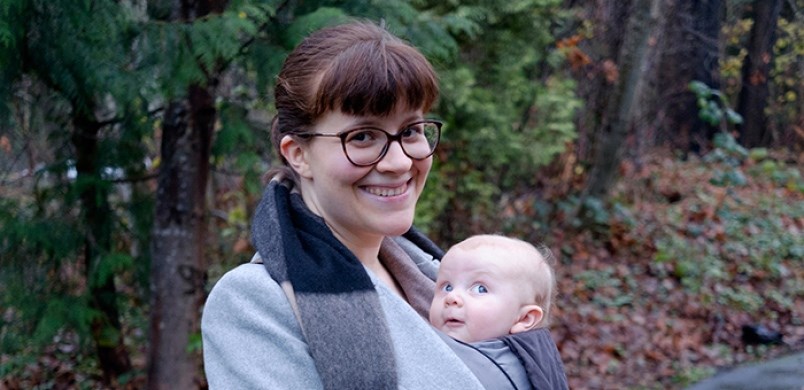The joy of welcoming a new baby into the family can sometimes be overwhelmed by feelings of anxiety and depression.
Moms, dads and even adoptive parents can suffer from postpartum depression (PPD), with estimates as high as one in six moms and one in 10 dads experiencing this debilitating mental illness.
Yet, as with other forms of mental illness, there is a stigma attached to PPD, fuelled by lack of understanding and high expectations of parenthood.
Thankfully, more people are learning about PPD and are shedding light on this issue, with one Coquitlam woman sharing her own story and starting a Gofundme page for self-care baskets that would be handed out to new moms.
Rachel Lalonde said she first experienced PPD when she was pregnant with her first son but felt she couldn't share her experience because her visitors expected to see a happy new mom. The symptoms improved with her second pregnancy but returned when her new son was born.
She turned to the Pacific Post Partum Support Society for help and learned that moms often put self-care at the bottom of the list. Thus, she came up with the idea of First Forty Days baskets that would include personal care items, healthy food and snacks, PPD resources and uplifting notes handwritten by moms.
The Canadian Mental Health Association acknowledges that postpartum depression can be a difficult experience and recommends counselling and support, which can sometimes mean taking medication as well as participating in cognitive-behavioural therapy that teaches important skills like problem-solving, realistic thinking and stress management.
But most important of all is reaching out to others, such as the Pacific Post Partum Support Society, which offers a variety of services, including weekly support groups and telephone and text message support, publications and resource materials.
Loved ones can also help by being open and sympathetic.
For the sake of young families and the health of the community, we need to be aware of PPD and find ways to provide compassion and support.



